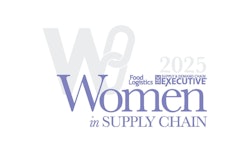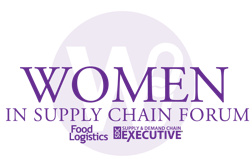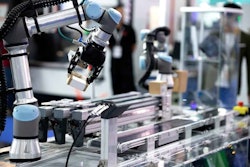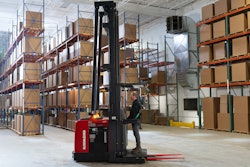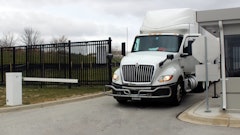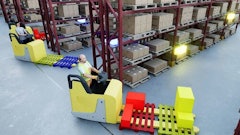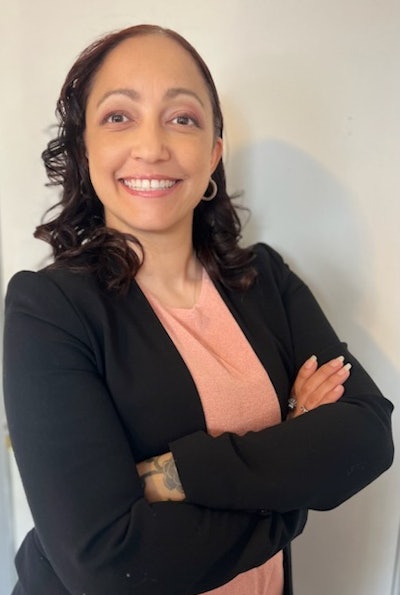
Taiz Cardona, senior learning partner for UNFI, was named a recipient of the 2025 Women in Supply Chain award, presented by Food Logistics and Supply & Demand Chain Executive, and sponsored by Let’s Talk Supply Chain, in the Workforce Innovator category.
Cardona joined UNFI in June 2021 as one of the first three supervisors hired for the startup of both the dry and perishable buildings in Allentown, Pa., where she was responsible for selection, loading, staffing, and supporting the training department. Currently, she’s working on creating/designing daily task sheets to better align supervisors’ responsibilities and drive efficiencies and operational optimization. In the past 12 months, Cardona has made significant impacts to the organization, including the Bill of Lading process, where through a series of learnings and training events, she worked to help save the organization an estimated $80 million. She also participated in the inaugural Change Trailblazer program, where she leveraged her knowledge, skills, leadership, and training abilities to ensure every member of the team grasped the intricacies of the transition through her comprehensive presentation.
Cardona got her start in distribution and supply chain in April 2016, working as a warehouse clerk dropping orders, balancing selection work, and ensuring volume distribution. Within 3 months of her first role, she was selected to be in the inaugural Supervisor Development program and was quickly promoted to supervisor. During this time, she began running her distribution center’s training department and oversaw 15 local trainers for selection and all material handling and equipment requirements and certifications.
Marina Mayer, editor-in-chief of Food Logistics and Supply & Demand Chain Executive and co-founder of the Women in Supply Chain Forum, sat down with Cardona to talk about her journey, startups and predictions in supply chain come 2026.
Food Logistics and Supply & Demand Chain Executive: Let’s first talk about you. Tell us about yourself and your journey and how you got to this current stage in your career.
Taiz Cardona: My journey into the supply chain industry began about 12 years ago, though it wasn’t where I initially imagined myself. I was working in property management on a military base, and through some significant life changes, I found myself going in a new direction, one that would allow me to grow, challenge myself, and make a meaningful impact.
That shift led me into the world of distribution and operations, where I was fortunate to join a team that I not only worked with for eight years but also helped shape. Together, we built a culture rooted in collaboration, accountability, and continuous improvement, values that still guide me today.
Three years ago, I joined UNFI during the Allentown, Pa., startup, a fast-paced, high-energy environment that pushed me to grow quickly. I spent my first two years in operations, gaining firsthand experience in the day-to-day challenges and opportunities of the supply chain. That foundation helped me when I was promoted into the learning and development team, where I now focus on building leadership capabilities, shaping culture, and driving innovative approaches to workforce development.
Food Logistics and Supply & Demand Chain Executive: Walk me through some of the challenges you personally have faced in the industry, and what you did to turn those challenges into opportunities.
Cardona: There have been several challenges I’ve faced throughout my journey in this industry. One of the most personal and persistent has been being taken seriously. Whether it was due to my appearance, being a woman in a male-dominated field, or my nationality, I’ve had to learn how to navigate spaces where I wasn’t always seen or heard in the ways I deserved.
I entered the supply chain world with minimal training and little guidance. I had to rely heavily on my instincts, resilience, and the lessons life had already taught me. One of the deepest influences came from my childhood. I remember watching my grandparents work tirelessly in warehouses, sometimes not seeing them for days as they did everything they could to make ends meet while raising me. Their strength, sacrifice, and quiet perseverance left a lasting impression.
I’ve used those memories as inspiration, not just to push through my own challenges, but to create opportunities for others. Whether it’s mentoring, building inclusive learning programs, or advocating for change, I strive to make sure others don’t have to walk the same path alone. Every challenge I’ve faced has become a steppingstone toward creating a more supportive, equitable, and empowering environment for those coming up behind me.
Food Logistics and Supply & Demand Chain Executive: You participated in UNFI’s inaugural Change Trailblazer program. What are some key takeaways you can share with us?
Cardona: I truly enjoyed participating in the Change Trailblazer program. I’ll admit, I was a bit nervous at first, this was my first time experiencing something like it, and I wasn’t sure what to expect. But once the program began, I quickly realized how valuable it would be.
One of the biggest takeaways was the opportunity to collaborate with participants from other departments. Through group discussions and instructive sessions, I found myself not only able to support others by answering operations-related questions but also gaining insight into areas of the business I hadn’t been exposed to before. That exchange of knowledge was incredibly powerful.
The program also provided us with tools and resources to strengthen our project management skills, which I’ve been able to apply directly in my role. But most importantly, it opened up lines of communication across departments that don’t typically collaborate with each other. That deeper understanding of each other’s work has helped build stronger cross-functional relationships and a more unified approach to driving change across the business.
Food Logistics and Supply & Demand Chain Executive: You were one of one of the first three supervisors hired for the startup of both the dry and perishable buildings in Allentown, Pa. What are some lessons learned?
Cardona: One of the first lessons I learned, and I say this with a smile, is to invest in better steel toe shoes! Jokes aside, while this wasn’t my first startup experience, Allentown was unique in many ways. Managing both dry and perishable buildings in a full-case pick environment brought a whole new level of complexity and coordination.
One key lesson was the importance of reaching out to other facilities early on to learn from their experiences. Every startup has its own rhythm, but there’s so much value in tapping into the collective knowledge across the network. I wish I had done more of that upfront.
Another big takeaway was learning how to manage the intensity of the startup environment. With the volume of people in the building, so many moving parts, and the pressure to “just get the job done,” it’s easy for stress to take over. I learned how critical it is to stay grounded, communicate clearly, and create space for collaboration, even in the chaos. Those lessons have stayed with me and continue to shape how I lead and support others today.
Food Logistics and Supply & Demand Chain Executive: What are your Top 3 predictions/trends for supply chain and logistics come 2026?
Cardona: A few predictions/trends I predict for supply chain and logistics are continued investments in training and development. Empowering frontline associates with the right skills will be the key to drive efficiency and innovation.
The second prediction I would say is stronger communication bridges between warehouses and corporate. When warehouse teams and corporate functions truly understand each other’s challenges and goals, it creates alignment, trust, and better decision-making.
I see more companies investing in tools and programs that foster that connection. With better visibility into performance and potential, companies can use data to identify promotion opportunities and strengthen the knowledge base within our facilities. This not only boosts retention but also creates a more connected, capable, and future-ready workforce.




